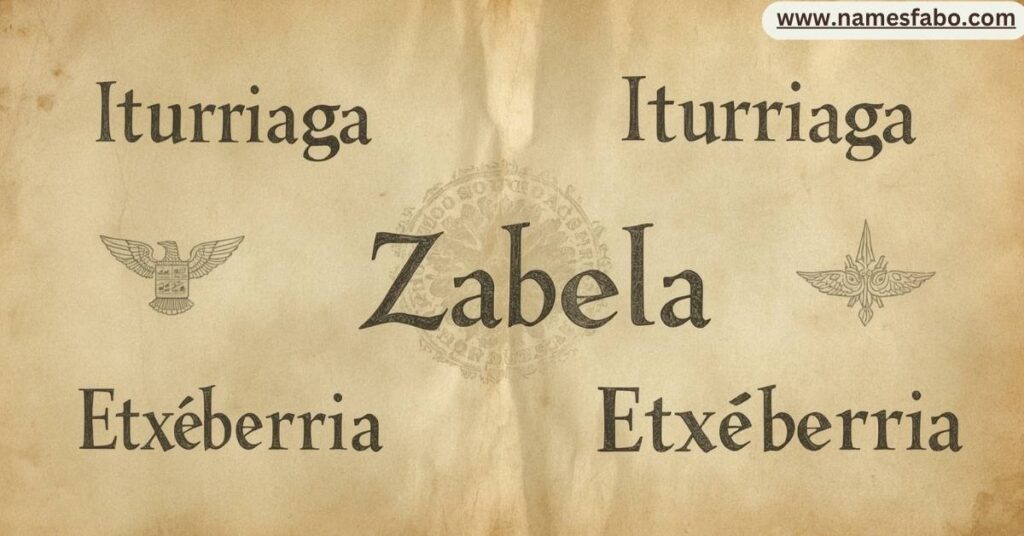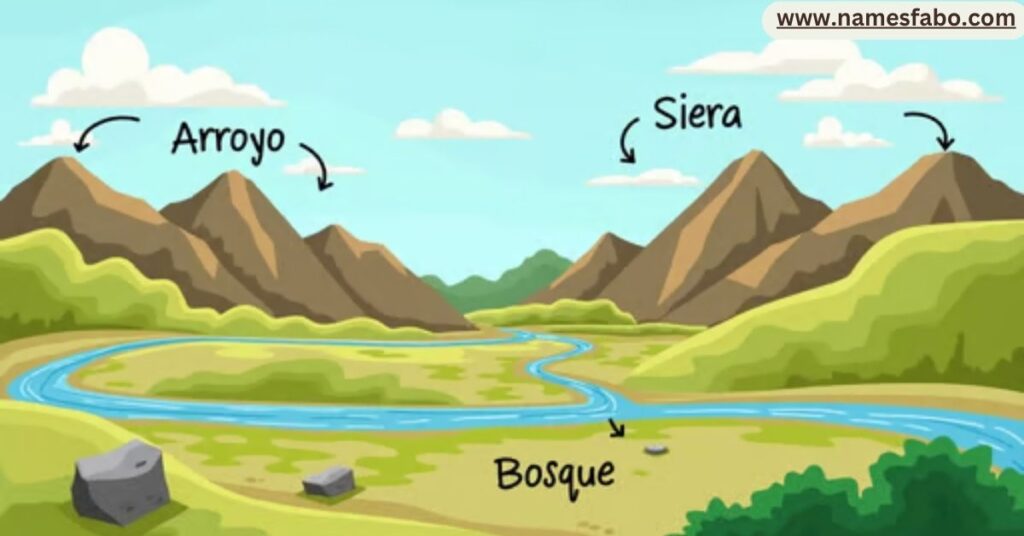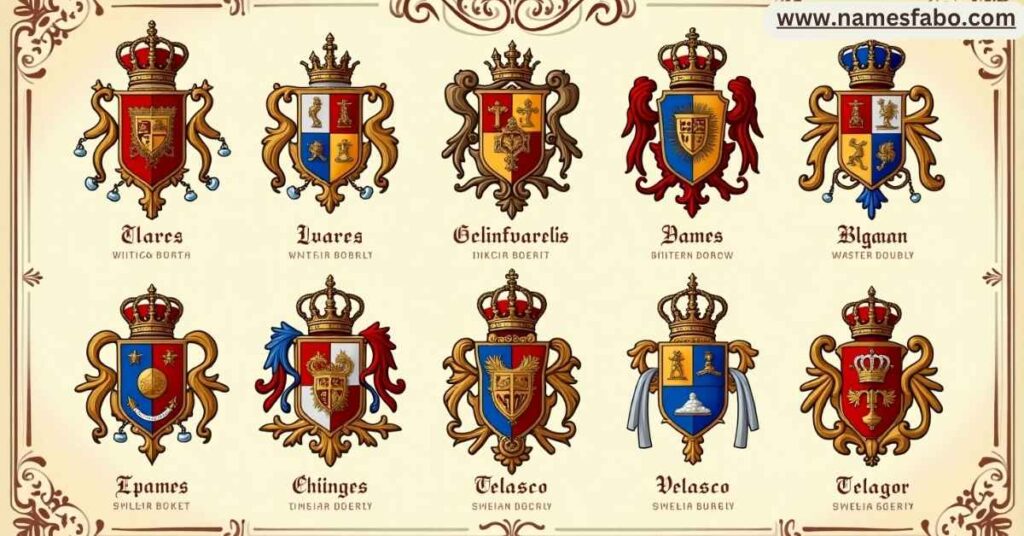Spanish last names tell incredible stories of heritage, history, and cultural identity. These surnames in Spanish culture connect millions of Americans to their ancestral roots across the Iberian Peninsula and Latin America.
Whether you’re exploring your genealogical Spanish surnames or searching for the perfect name, this guide reveals the fascinating world of Hispanic family names.
From common patronymic endings to rare noble Spanish family names, each surname carries centuries of tradition. What does my Spanish last name mean? This comprehensive guide answers that question and many more, exploring traditional Spanish surnames that have shaped cultures across continents.
Popular Spanish Last Names
Spanish family names dominate American demographics today, with over 40 million Hispanic Americans carrying these ancestral treasures. These most used Spanish surnames reflect centuries of immigration, cultural blending, and family traditions.
What are traditional Spanish last names that you’ll encounter most frequently? The answer lies in understanding patronymic last names in Spanish culture and their evolution through generations.
Top Spanish surnames 2025 continue showing the same patterns established centuries ago. How do Spanish surnames work in modern America? They maintain their cultural significance while adapting to contemporary naming trends.
- García – Son of García, most common Hispanic last name list entry
- Rodríguez – Son of Rodrigo, surnames in Spain and Latin America favorite
- Martínez – Son of Martín, traditional Spanish surnames classic
- López – Son of Lope, Spanish heritage surnames staple
- González – Son of Gonzalo, Hispanic naming structure example
- Pérez – Son of Pedro, Spanish surname examples leader
- Sánchez – Son of Sancho, surnames of Spanish royalty connection
- Ramírez – Son of Ramiro, old Spanish family names representative
- Cruz – The Cross, Catholic Spanish names symbol
- Flores – Flowers, Spanish names with meanings from nature
- Gómez – Son of Gome, Spanish naming history showcase
- Díaz – Son of Diego, family name customs in Spain tradition
- Reyes – Kings, surnames from Spanish kings reference
- Morales – Mulberry trees, Spanish surnames from nature example
- Ortiz – Son of Orti, Spanish naming system demonstration
Rare Spanish Last Names

Rare Hispanic surnames carry whispers of forgotten villages, ancient trades, and noble lineages lost to time. These old Spanish family names survived against incredible odds, preserving unique stories from Spain’s complex history.
What’s the rarest Spanish surname you might discover in your family tree? Many trace back to surnames from Spanish towns that no longer exist or Basque surnames with pre-Roman origins.
Rare last names from Spain often reflect regional dialects, ancient occupations, or geographic features known only to locals centuries ago. Surname evolution in Spain created thousands of variants, many disappearing as families migrated or died out.
- Aguinaga – Place of eagles, Basque surnames origin
- Echeverría – New house, rare Basque surnames example
- Iturriaga – Near the fountain, Iberian Peninsula last names rarity
- Zabala – Wide place, surnames by Spanish dialect variation
- Goicoechea – House on the hill, Galician family names connection
- Mendizábal – Cold mountain, surnames from Spanish geography reference
- Etxeberria – New house, cultural surnames of Spain treasure
- Olavarría – Mill valley, Spanish surnames by region specialty
- Urdaneta – Pig place, historical Spanish surnames curiosity
- Sagastizábal – Apple tree forest, surnames with Latin roots heritage
- Belausteguigoitia – Crow’s place above, surname dictionary Spain rarity
- Echevarrieta – Little new house, ancestral surnames in Spanish gem
- Gorostiza – Holly place, Spanish surnames through history survivor
- Iñiguez – Son of Íñigo, naming patterns in Spanish-speaking countries variant
- Zuloaga – Elm tree place, surnames by century in Spain remnant
Unique Spanish Last Names with English Translations
Spanish names in English translation reveal the poetic nature of surnames in Spanish culture. These Spanish surnames and their roots paint vivid pictures of ancestral landscapes, personality traits, and life circumstances.
Spanish names with meanings from nature, geography, and daily life create a rich tapestry of cultural expression.
How to find Spanish surname meanings becomes easier when you understand the linguistic patterns. Spanish last names and their roots often translate directly, offering immediate insight into family history.
What are noble Spanish surnames that carry deeper meanings? Many reflect the environments, trades, and characteristics that defined medieval Spanish life.
- Aguirre – Prominence, meadow
- Arroyo – Stream, creek
- Blanco – White, fair-haired
- Cabrera – Goat place
- Delgado – Thin, slender
- Espinoza – Thorny place
- Fuentes – Fountains, springs
- Guerrero – Warrior, fighter
- Herrera – Blacksmith shop
- Iglesias – Churches
- Jiménez – Son of Jimeno
- León – Lion
- Moreno – Dark-haired, brunette
- Navarro – From Navarre
- Peña – Rock, cliff
- Quintero – Fifth son
- Rivera – Riverbank
- Serrano – Mountain dweller
- Torres – Towers
- Valle – Valley
Most Common Spanish Last Names and Meanings
Common Hispanic last names dominate not just Spain but entire continents where Spanish culture took root. What is the origin of Spanish surnames that appear most frequently? Most trace to patronymic and matronymic surnames explained through the “-ez” suffix system, meaning “son of” or “descendant of.”
How Spanish surnames reflect history becomes clear when examining these frequent names. Spanish surname traditions preserved fathers’ names through generations, creating the most searched Spanish surnames we recognize today.
Famous surnames in Hispanic culture often began as simple patronymic identifiers that grew into massive family networks.
- García – Bear-spear bearer, surnames linked to Roman heritage
- Martínez – Son of Martín, traditional Spanish surnames champion
- López – Son of Lope, Spanish heritage surnames leader
- González – Son of Gonzalo, family name customs in Spain example
- Pérez – Son of Pedro, Spanish naming system demonstration
- Rodríguez – Son of Rodrigo, Hispanic last name list essential
- Sánchez – Son of Sancho, old Spanish family names classic
- Ramírez – Son of Ramiro, surnames in Spain and Latin America favorite
- Cruz – Cross, Catholic Spanish names symbol
- Flores – Flowers, Spanish names with meanings beauty
- Morales – Mulberry trees, Spanish surnames from nature example
- Ortiz – Son of Orti, Spanish surname examples standard
- Gutiérrez – Son of Gutierre, surnames of Spanish royalty connection
- Álvarez – Son of Álvaro, Iberian Peninsula last names representative
- Díaz – Son of Diego, Spanish naming history showcase
Read More About : Last Names: 1,000 + Most Common in the U.S. |2025|
Spanish Last Names That Signify an Occupation
Occupational surnames Spain preserve medieval trades and professions that built Spanish civilization. These surnames from Spanish occupations tell stories of craftsmen, warriors, and professionals whose skills defined their family identity forever.
Spanish surnames by origin often reflect the specialized roles ancestors played in their communities.
Meaning of Spanish occupational surnames reveals Spain’s economic and social structure during the Middle Ages. How Spanish surnames are formed from occupations created lasting family identities that crossed oceans with Spanish colonization. These Spanish last names by occupation meaning continue honoring ancestral professions centuries later.
- Herrera – Blacksmith, ironworker
- Guerrero – Warrior, soldier
- Pastor – Shepherd, religious leader
- Carpintero – Carpenter, woodworker
- Molina – Miller, grain processor
- Barbero – Barber, surgeon
- Zapatero – Shoemaker, cobbler
- Tejada – Weaver, textile worker
- Vaquero – Cowboy, cattle herder
- Cazador – Hunter, game provider
- Pescador – Fisherman, maritime worker
- Minero – Miner, metal extractor
- Panadero – Baker, bread maker
- Carnicero – Butcher, meat seller
- Mercader – Merchant, trader
Spanish Last Names From Nature, Landscapes & Geography

Surnames that reflect Spanish geography capture the stunning diversity of the Iberian Peninsula’s landscapes. These Spanish river surnames and mountain references create living maps of ancestral homelands. Spanish surnames from nature preserve the environments that shaped family histories across generations.
Geographical surname meanings reveal how deeply Spanish families connected to their physical surroundings. Spanish surnames by region often reflect local geographic features, creating unique identities tied to specific places.
Surnames from Spanish geography continue linking families to their ancestral landscapes today.
- Rivera – Riverbank, water’s edge
- Montoya – Mountain, highland
- Valle – Valley, lowlands
- Peña – Rock, cliff face
- Arroyo – Stream, small river
- Sierra – Mountain range
- Campo – Field, countryside
- Bosque – Forest, woodland
- Lago – Lake, water body
- Isla – Island, isolated land
- Costa – Coast, shoreline
- Colina – Hill, elevated ground
- Pradera – Meadow, grassland
- Desierto – Desert, arid land
- Volcán – Volcano, fire mountain
What Are the Most Popular Spanish Surnames?
Top Spanish surnames 2025 statistics reveal fascinating patterns in Hispanic naming structure across America. Most used Spanish surnames continue reflecting centuries-old traditions while adapting to modern multicultural environments.
What makes a surname Spanish versus other Hispanic origins creates interesting questions for genealogists and cultural researchers.
Trending Spanish surnames show how naming patterns in Spanish-speaking countries influence American Hispanic communities. Spanish names used in 2025 demonstrate the enduring power of traditional Spanish surnames in contemporary society.
| Rank | Surname | Meaning | Origin | US Frequency |
| 1 | García | Bear spear | Basque/Visigothic | 2.3 million |
| 2 | Rodríguez | Son of Rodrigo | Patronymic | 2.1 million |
| 3 | Martínez | Son of Martín | Patronymic | 1.9 million |
| 4 | López | Son of Lope | Patronymic | 1.8 million |
| 5 | González | Son of Gonzalo | Patronymic | 1.7 million |
| 6 | Pérez | Son of Pedro | Patronymic | 1.6 million |
| 7 | Sánchez | Son of Sancho | Patronymic | 1.5 million |
| 8 | Ramírez | Son of Ramiro | Patronymic | 1.4 million |
| 9 | Cruz | Cross | Religious | 1.2 million |
| 10 | Flores | Flowers | Nature | 1.1 million |
Spanish Last Names Ending in -Ez
Last names ending in -ez represent the heart of Spanish naming history and patronymic last names in Spanish culture. Why do Spanish names end in ez? The answer lies in Visigothic linguistic influences that created this distinctive suffix in Spanish surnames pattern. Who started the -ez suffix in Spain traces back to medieval Germanic people that ruled the Iberian Peninsula.
Meaning of Spanish last name suffixes reveals how “-ez” literally means “son of,” creating family lineage in Spanish names that spans generations. How Spanish surnames reflect history becomes clear through this systematic naming pattern that preserved paternal connections across centuries.
- Rodríguez – Son of Rodrigo
- Martínez – Son of Martín
- López – Son of Lope
- González – Son of Gonzalo
- Pérez – Son of Pedro
- Sánchez – Son of Sancho
- Ramírez – Son of Ramiro
- Gutiérrez – Son of Gutierre
- Álvarez – Son of Álvaro
- Díaz – Son of Diego
- Hernández – Son of Hernando
- Jiménez – Son of Jimeno
- Vásquez – Son of Vasco
- Domínguez – Son of Domingo
- Fernández – Son of Fernando
- Velázquez – Son of Velasco
- Núñez – Son of Nuño
- Méndez – Son of Mendo
- Benítez – Son of Benito
- Chávez – Son of Chava
Read More : Russian Last Names : A Detailed Guide in 2025
Old Spanish Last Names
What’s the oldest Spanish surname question fascinates genealogists exploring historic family surnames and ancestral surnames in Spanish culture. These old fashioned Spanish surnames preserve connections to medieval Spain, Roman heritage, and even pre-Christian traditions.
Historical Spanish surnames carry stories of conquest, migration, and cultural survival across millennia.
Surnames linked to Roman heritage demonstrate how Spanish surnames through history evolved from Latin origins. Where do Hispanic surnames originate often traces back to these ancient roots that predate modern Spain’s formation. How to trace Spanish family history requires understanding these deep historical connections.
- Vega – Fertile plain, Roman origin
- Castro – Castle, fortified place
- León – Lion, Roman legion reference
- Córdoba – Ancient city name
- Toledo – Elevated place, pre-Roman
- Burgos – Fortress, medieval origin
- Ávila – Walled city reference
- Segovia – Victory place, Celtic root
- Salamanca – Ancient settlement
- Palencia – Roman colony name
- Zamora – Turquoise, Arabic influence
- Cáceres – Ancient fortress
- Badajoz – Border fortress
- Mérida – Roman Emerita Augusta
- Talavera – Pottery town, Arabic name
Spanish Last Names For Male
Spanish baby last names for girls and boys traditionally followed different inheritance patterns, though gender-neutral Spanish surnames are becoming more common today.
Traditional Spanish family titles historically emphasized paternal lineage, but modern naming conventions in Latino culture increasingly embrace equality in family name customs in Spain.
How surnames evolved in Spanish culture shows changing attitudes toward gender roles in naming practices. Contemporary families often choose Spanish surnames for genealogy research that honor both parents equally, regardless of traditional gender associations.
- Guerrero – Warrior, masculine strength
- Fuerte – Strong, powerful
- Bravo – Brave, courageous
- León – Lion, regal power
- Rey – King, royal authority
- Conde – Count, noble title
- Caballero – Knight, gentleman
- Soldado – Soldier, military
- Capitán – Captain, leader
- General – General, commander
- Héroe – Hero, champion
- Vencedor – Victor, winner
- Conquistador – Conqueror, explorer
- Emperador – Emperor, supreme ruler
- Príncipe – Prince, royal heir
Spanish Last Names For Female
Matronymic names in Spanish culture represent rare but significant examples of surnames with mythological roots in Spain and female-centered naming traditions.
These Spanish surnames for family history research reveal matriarchal influences that survived patriarchal naming systems. Where do Hispanic surnames originate sometimes traces to powerful women who founded family lines.
Spanish surnames explained through feminine perspectives shows how cultural surnames of Spain occasionally honored mothers, grandmothers, and female saints. Surname tracing in Spanish families reveals these hidden matriarchal connections in seemingly male-dominated naming systems.
- Esperanza – Hope, virtue name
- Dolores – Sorrows, religious reference
- Mercedes – Mercies, divine grace
- Soledad – Solitude, contemplation
- Consuelo – Consolation, comfort
- Amparo – Protection, shelter
- Socorro – Help, assistance
- Remedios – Remedies, healing
- Pilar – Pillar, strength
- Rosario – Rosary, prayer
- Carmen – Garden, paradise
- Milagros – Miracles, divine signs
- Angustias – Anguish, suffering
- Presentación – Presentation, offering
- Encarnación – Incarnation, divine embodiment
Royal Spanish Surnames

Surnames of Spanish royalty and surnames from Spanish kings represent the pinnacle of noble Spanish family names hierarchy. These Spanish noble family names carry centuries of political power, cultural influence, and historical significance. Last names inspired by Spanish royalty continue prestigious legacies that shaped European and world history.
Surnames from Castile and other Spanish kingdoms preserve royal bloodlines that conquered continents and built empires. Royal Spanish surnames often became common surname combinations as nobility intermarried with commoners or granted surnames to loyal subjects.
- Bourbon – French royal house, Spanish kings
- Habsburg – Austrian dynasty, Spanish rulers
- Trastámara – Medieval Castilian dynasty
- Jiménez – Royal house of Navarre
- Álvarez – Noble house of Asturias
- Mendoza – Powerful noble family
- Enríquez – Royal bastard line
- Pacheco – Portuguese noble house
- Manrique – Castilian noble family
- Téllez – Ancient noble lineage
- Guzmán – Andalusian noble house
- Sandoval – Noble family of Castile
- Velasco – Basque noble lineage
- Acuña – Portuguese noble house
- Fonseca – Galician noble family
Spanish Last Names With 7 Letters
Spanish surnames for genealogy research often requires specific letter counts for database searches and surname documentation Spain requirements. List of cool Spanish surnames in 2025 frequently includes these seven-letter combinations that create memorable and distinctive family names.
Cool Spanish last names for characters in literature and media often favor this length for its balance of authenticity and memorability. Spanish surnames explained through letter patterns reveals interesting linguistic structures that make certain combinations more common than others.
- Aguilar – Eagle place
- Almeida – Flat area
- Cabrera – Goat place
- Delgado – Thin person
- Escobar – Broom field
- Fuentes – Fountains
- Gallego – From Galicia
- Herrera – Blacksmith
- Iglesia – Church
- Jiménez – Son of Jimeno
- Kastillo – Castle variant
- Linares – Flax fields
- Montero – Hunter
- Navarro – From Navarre
- Ornelas – Little elm
Read More About : Greek Names for Babies : 1000 + Powerful Ideas & Meanings
Spanish Naming Customs
Hispanic naming structure differs significantly from Anglo-American traditions, creating beautiful complexity in family lineage in Spanish names. Why do Spanish people have two last names? The answer lies in centuries-old customs that honor both maternal and paternal heritage. Traditional Spanish family titles and naming conventions in Latino culture preserve family connections across generations.
What do Spanish double surnames mean in practical terms? They create a living family tree, where each person carries forward both parents’ heritage. Spanish compound surnames tell stories of marriage, inheritance, and cultural preservation that naming customs in Hispanic culture have maintained for over 500 years.
Understanding how Spanish surnames are formed helps Americans appreciate the depth of Hispanic cultural traditions. Spanish surnames and their roots connect directly to medieval Spain’s social structure, where surname prefixes in Spanish indicated geographic origin, social status, or family relationships.
| Traditional Structure | Modern American Adaptation | Cultural Significance |
| Maternal surname first | Often dropped for simplicity | Honors mother’s lineage |
| Paternal surname second | Becomes primary surname | Continues father’s line |
| Connected with “y” | Rarely used in America | Links family histories |
| Legal in all documents | May cause documentation issues | Preserves full identity |
Spanish Name and Capitalization Rules in MLA Citation Style
How to cite Spanish names MLA and Spanish names and capitalization rules create challenges for academic writers unfamiliar with Hispanic naming structure. How to write Spanish names correctly in citations requires understanding surname prefixes in Spanish and Spanish surname grammar rules that differ from English conventions.
What do Spanish double surnames mean for citation purposes involves complex rules about Spanish compound surnames and particle handling. Spanish naming law influences how surnames in Spanish grammar should appear in academic documentation, requiring careful attention to cultural accuracy and scholarly standards.
MLA Citation Rules for Spanish Names:
| Name Component | Capitalization Rule | Citation Format | Example |
| Paternal surname | Always capitalized | Primary sorting name | García |
| Maternal surname | Always capitalized | Secondary reference | Márquez |
| Particles (de, del) | Lowercase unless beginning | Include in citation | de la Cruz |
| Compound surnames | Both parts capitalized | Hyphenated format | García-Márquez |
| Noble particles | Capitalized | Full inclusion | Del Campo |
Frequently Asked Questions
What are rare Spanish last names?
Rare Spanish last names are unique family names that aren’t widely used, like Zubizarreta, Esparza, or Galindo. These names often trace back to specific regions, old professions, or noble bloodlines. They stand out because they’re less common in modern Spanish-speaking countries.
What is an old Spanish last name?
An old Spanish last name usually dates back centuries and has deep historical or noble roots think names like González, Álvarez, or Ramírez. These names often originated from medieval Spain and carried meanings tied to lineage or geographic origin.
Why Are Some Spanish Last Names So Common?
Many Spanish last names are common because they come from patronymics (like Martínez meaning “son of Martín”) or were tied to widespread professions or saints. Over time, these names were passed down through generations, making them widespread across Spanish-speaking families.
What Are Some Rare Spanish Surnames?
Some rare Spanish surnames include Aguinaga, Montemayor, Urquieta, and Echeverría. These names are less common due to regional origins, historical shifts, or limited family branches that carried them forward.
Conclusion
Spanish last names carry amazing stories that connect millions of families to their roots. These names tell us about brave warriors, skilled craftsmen, and beautiful places where our ancestors lived. Each surname holds special meaning that goes back hundreds of years. Parents who want to honor their heritage find great value in learning about these family names. Students working on school projects discover fascinating facts about Spanish culture through surname research.
Understanding Spanish last names helps people feel proud of their background and family history. These names travel from Spain to America and keep important traditions alive. Many families use this knowledge to teach their children about where they came from. Learning about your surname creates strong family bonds and cultural pride. Start exploring your family name today by researching its meaning and origin. Share these discoveries with your relatives and friends to spread the joy of cultural heritage. Your Spanish last names represent generations of strength, courage, and tradition that deserve celebration and respect.

Lena Rivers
Content Creator
Lena Rivers, our co-founder and creative soul, combines her love for animals with a flair for fantasy naming. Her unique ability to blend myth and nature results in captivating names that bring magical creatures to life. With a passion for storytelling, Lena adds a touch of wonder to every project she undertakes.

